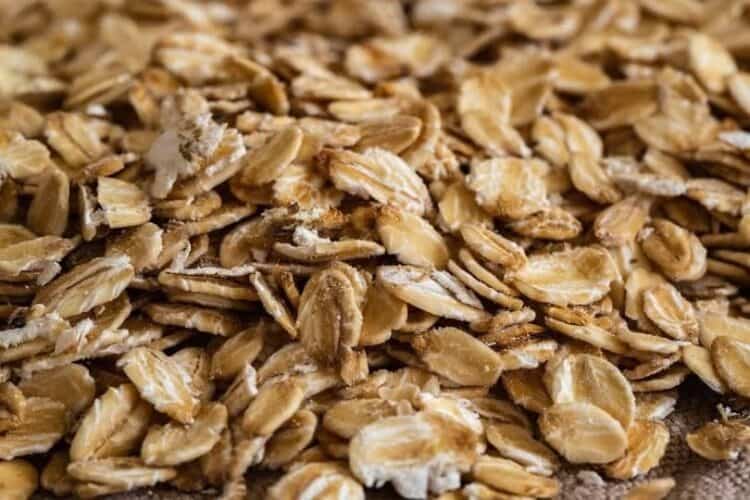Dogs are like people in many ways. They enjoy a good meal, and they love to have fun. But just as with people, their diet determines their health and what they can get out of life.
As loving pet owners, we only want what’s best for our furry friends, so it’s important to understand the ins and outs of doggy nutrition, including which grains are good for dogs.
So what grains are best for dogs? Let’s take a look at four great choices.
Do Dogs Need Grains?
The short answer is, maybe.
While some people swear by grain-free diets for their dogs, there isn’t a whole lot of evidence that grains are bad for dogs. In fact, whole grains can actually be good for your dog’s health.
Just like humans, dogs are omnivores and need a variety of nutrients to stay healthy. Grains are an important part of a healthy diet for dogs as they provide essential vitamins, minerals, and fiber.
The 4 Best Grains for Dogs
1. Brown Rice
One of the best grains for dogs is brown rice. Brown rice is packed with fiber, vitamins, and minerals like magnesium, phosphorus, and manganese.
It’s also a great source of complex carbohydrates, which are an important energy source for dogs.
When it comes to feeding dogs rice, there are a few things to keep in mind. First, you should always cook the rice before feeding it to your dog. Second, you’ll want to avoid feeding your dog too much rice. A good rule of thumb is to feed your dog no more than 1/4 cup of rice per day.

2. Oats
Oats are another great grain for dogs. Like brown rice, they’re packed with vitamins, minerals, and fiber. They’re also a good source of complex carbohydrates.
Oats are particularly beneficial for dogs who are overweight or have diabetes. That’s because they have a low glycemic index, which means they don’t cause blood sugar levels to spike.
They can be fed cooked or raw, and you can even add them to your dog’s food as a topper.
3. Barley
Barley is another excellent grain for dogs. It’s a good source of fiber, vitamins, and minerals. It also contains beta-glucans, which are believed to have immune-boosting properties.
Barley contains high selenium levels, which are excellent immune system boosters.
Like oats, barley can be cooked and served as a porridge. You can also find barley in many commercially-prepared dog foods.
4. Sorghum
Sorghum is a type of grain that is often used in animal feed. It is a good source of protein and essential nutrients, and it can be beneficial for dogs who are struggling to maintain a healthy weight.
Sorghum is also easy to digest and has a low glycemic index, making it a good choice for dogs with diabetes or other health conditions that require a low-sugar diet.
Benefits of Grains for Dogs
Including grains in your dog’s diet is a great way to keep them healthy and happy. Grains provide essential nutrients that are important for a variety of bodily functions. They also offer several health benefits, including:
- Improved digestion
- Reduced risk of obesity
- Lower blood sugar levels
- Better joint health
- Improved immune function

What’s the Deal with Grain-Free Diets?
Despite the benefits of grains for dogs, grain-free diets are becoming increasingly popular.
There are a few reasons for this. First, some people believe that grain-free diets are more natural for dogs. Second, grain-free diets can be helpful for dogs with allergies or sensitivities.
Bear in mind, though, that the most common allergens for dogs are actually proteins, not grains. So if your dog has allergies, they may not be any better off on a grain-free diet.
It’s worth noting that the FDA has found links between grain-free diets and heart disease in dogs. Grain-free commercial dog foods may lack vital nutrients such as taurine. If you’re considering a grain-free diet for your dog, it’s important to talk to your vet first. They can help you choose the best diet for your dog’s individual needs.
Tips to Include Grains in Your Dog’s Diet
- Always cook the grains before feeding them to your dog. This will make them easier to digest.
- Avoid feeding your dog grains. They require a balanced diet, just like people do, and too many grains can lead to weight gain. A good rule of thumb is to feed your dog no more than 1/4 cup of grains per day.
- Add grains to your dog’s diet gradually. This will help you gauge their tolerance and avoid any digestive upset. Look for whole grains. These are more nutritious than refined grains.
- Choose organic, locally-grown grains whenever possible. This will ensure that they’re fresh and haven’t been treated with pesticides or other harmful chemicals.
Wrapping Up
Grains can be a healthy and nutritious part of your dog’s diet. They’re packed with essential nutrients and offer a number of health benefits. Just be sure to feed them in moderation and choose whole, organic grains whenever possible.
Featured Image Credit: Pixabay














